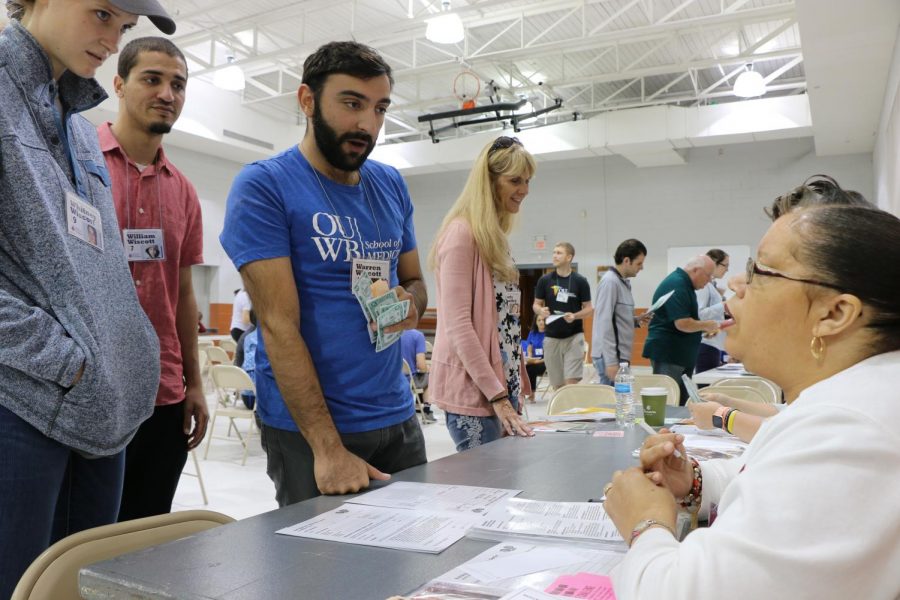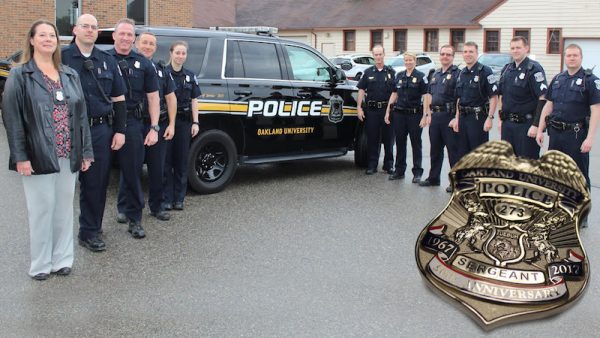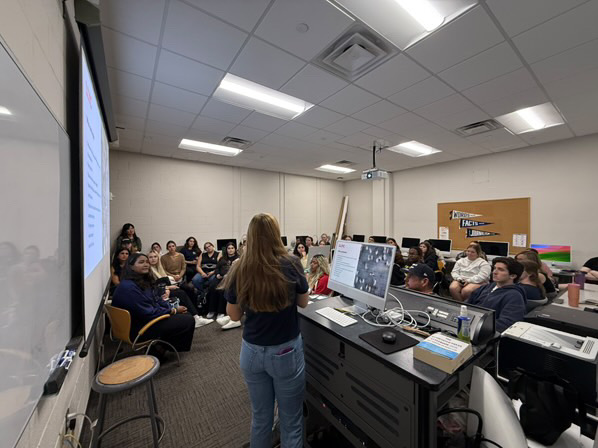School of medicine students participate in poverty simulation
About 30 Oakland University William Beaumont School of Medicine students participated in a poverty simulation on Saturday, Aug. 24 to help students broaden their viewpoints on the health determinants and social issues that people face.
The Missouri Community Action Network Poverty Simulation (CAPS), developed by the University of Missouri, aims to broaden students’ knowledge of communities apart from their own.
Students roleplayed as members of low-income families — from single parents to people in extreme poverty — and lived the lives of those people for four weeks simulation time (the simulation was one hour, with every 15 minutes representing a week).
Pontiac community members who had experience with low-income families and additional professors roleplayed as community resources for the participants, such as police officers, utility collectors, grocers, social services caseworkers, mortgage/rent collectors, Quik Cash managers and child care workers.
The simulation was planned by Dr. Jean Szura, OUWB director of service learning; Dr. Rose Wedemeyer, director of education training; and Dr. Victoria Lucia, associate professor of epidemiology, with help from Dr. Nelia Afonso, assistant dean for community integration and outreach.
Szura said the simulation was truly impactful for students, especially when considering their future patients.
“It taught them to understand that their patients are a full person, and there are a lot of factors that impact their health and their ability to maintain their health,” she said.
The CAPS was held at the Welcome Missionary Baptist Church in Pontiac, which Dr. Robert Noiva, associate dean for graduate studies and community integration, noted was a great location, in light of OU’s efforts to offer additional support to the city through the OU-Pontiac Initiative.
Many students said the simulation left an impact on them, and they appreciated seeing their classmates gain an understanding of life for people unlike themselves, according to Wedemeyer. The simulation was also held on the same day as OUWB’s annual Day of Service, a metro Detroit community outreach activity.
Noiva said the CAPS may have a stronger effect on students than requiring them to observe communities because of the ability to control the simulation, along with being able to pause and reflect at certain moments.
“Any kind of simulation gives you a safe environment to learn in …” he said. “When you do a simulation, you can control things, like we can make sure that something bad happens. If we just send somebody to work at social services or to follow around a family, maybe there wasn’t a big challenge that day, but [through simulation] you can do something to make sure they have an experience that will be challenging.”
Originally done as a pilot, OUWB plans to integrate the CAPS into its curriculum so all students will take part in it. Its inclusion in the “Promotion and Maintenance of Health” course will help influence OUWB’s 125-student future freshman classes and potentially students from other programs as well, according to Noiva.
Noiva said the simulation taught students a great deal of empathy for patients with limited resources without directly involving medicine.
“This wasn’t necessarily totally health related,” Noiva said. “This is about the challenges that these families experience and for you to understand what other challenges might impact how [patients] interact with you.”






